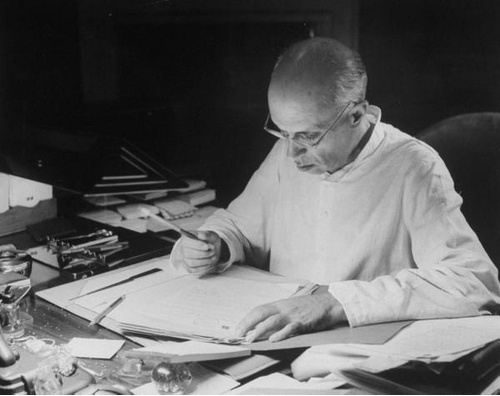Even if God did not exist, it would be necessary to invent Him, so Voltaire said. Perhaps that is true, and indeed the mind of man has always been trying to fashion some such mental image or conception, which grew with the mind’s growth. But there is something else in the reverse proposition: even if God exists, it may be desirable not to look up to Him or rely upon Him. Too much dependence on supernatural factors may lead, and has often led, to a loss of self-reliance in man and to a blunting of his capacity and creative ability. And yet some faith seems necessary in things of the spirit which are beyond the scope of our physical world, and some reliance on moral, spiritual and idealistic conceptions, or else we have no anchorage, no objectives or purpose in life. Whether we believe in God or not, it is impossible not to believe in something, whether we call it a creative life-giving force or vital energy inherent in matter which gives it its capacity for self-movement and change and growth, or by some other name, something that is as real, though elusive, as life is real when contrasted with death. Whether we are conscious of it or not most of us worship at the invisible altar of some unknown god and offer sacrifices to it—some ideal, personal, national or international; some distant objective that draws us on, though reason itself may find little substance in it; some vague conception of a perfect man and a better world. Perfection may be impossible of attainment, but the demon in us, some vital force, urges on us and we tread that path from generation to generation.
Source: Jawaharlal Nehru, The Discovery of India














